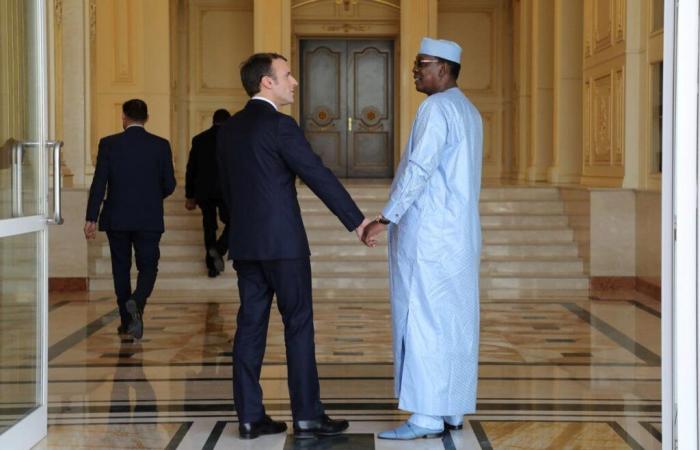Chad, the last bastion of French military presence in the Sahel strip, has decided to break the defense agreements that linked it to Paris, marking a pivotal moment in Franco-African relations. This decision, announced by Chadian Foreign Minister Abderaman Koulamallah, does not constitute a total break, but rather an affirmation of sovereignty long compromised by decades of asymmetric cooperation. In a changing Sahel, where the former colonial powers are seeing their influence crumble, this choice symbolizes a major political position.
A Chad in search of total sovereignty
Chad is a historic pillar of French strategy in Africa. Since independence in 1960, the relationship between the two countries has been marked by strategic interdependence. For Paris, Chad represented an essential base for its military operations. The imprint of Operation Épervier on this relationship is indelible. Launched in 1986 to counter Libyan expansion in northern Chad, this French military intervention has transformed over the years into a mission to stabilize Chadian power. Dissolved in 2014, it was replaced by the Barkhane system, aimed at combating jihadism in the Sahel. For N'Djamena, the French presence guaranteed a certain stability in the face of rebel threats, such as those of 2008 and 2019, when the French army intervened directly to protect the regime of the late Idriss Déby.
But in 2024, the discourse changes. “It is time for Chad to assert its full sovereignty,” insisted Abderaman Koulamallah. This desire for autonomy is part of a regional dynamic where several countries, notably Mali, Burkina Faso and Niger, have already broken with Paris, expressing a growing rejection of French policy in Africa. These successive ruptures demonstrate a tectonic shift: the model of security cooperation inherited from Françafrique is about to be dismantled.
Operation Barkhane in Mali: our file
Paris formalized this Thursday, February 17, 2022, Mali's withdrawal from anti-jihadist military operations Barkhane and Takuba. The armed intervention which began in 2013 cost the lives of 58 French soldiers.
A troubled regional context
Chad's announcement comes in a climate of widespread distrust towards the foreign military presence in the region. If Mali and Burkina Faso expelled French forces amid accusations of interference and ineffectiveness in the fight against terrorism, Chad adopts a more nuanced posture. “It’s not a break,” Koulamallah clarified. The Chadian government has chosen a gradual approach, respecting the terms of the termination agreements. But the essence of the message is clear: national sovereignty now takes precedence over all other considerations.
This turnaround is part of a timeline marked by complex political transitions. Last May, Mahamat Idriss Déby Itno, son of the late president, was elected following a period of military transition. His accession to power symbolizes a desire to turn the page on his father's legacy, while redefining the country's strategic priorities. In the background, the war in Sudan is exacerbating regional tensions, placing Chad in a delicate position, accused by some of letting weapons transit for the Rapid Support Forces (FSR).
France at the crossroads
For France, this Chadian decision represents a profound questioning of its African strategy. After diplomatic failures in Mali, Niger and Burkina Faso, Paris loses its last anchor point in the Sahel. If Minister Jean-Noël Barrot, visiting N'Djamena on the same day of the announcement, hoped to reaffirm bilateral ties, he was confronted with a cruel reality: the time for unbalanced partnerships seems to be over.
Emmanuel Macron had however tried to redefine the role of France on the continent. The report submitted this week by Jean-Marie Bockel recommended a “renewed and co-constructed partnership”. But this theoretical shift comes up against a palpable exasperation of African people and elites. Barrot's call to end foreign interference in the Sudanese conflict – a veiled criticism of Russia and the Emirates – illustrates Paris' embarrassment over the rise of influential new nations.
An irreversible regional dynamic
Chad's decision is part of a major trend: that of a Sahelian Africa which wants to reclaim its destiny. The discourse of sovereignty, carried by figures like Ibrahim Traoré in Burkina Faso or Assimi Goïta in Mali, now finds an echo in Chad, a country nevertheless considered a faithful ally of France. This movement is not limited to the military domain. It reflects a more global desire to rethink relations with former colonial powers and to diversify partnerships, particularly with China, Russia and Turkey.
The Chadian specificity, however, lies in the prudence of its approach. Unlike its neighbors, N'Djamena does not reject Paris outright. The stated objective is to “redefine strategic partnerships according to national priorities”, without turning our back on a historic partner. This measured stance could open the way to a renewed form of cooperation, based on mutual respect and a better understanding of local expectations. Chad, long dependent on French military support, is sending a clear message: it is ready to assume its destiny, even if it means taking risks.






